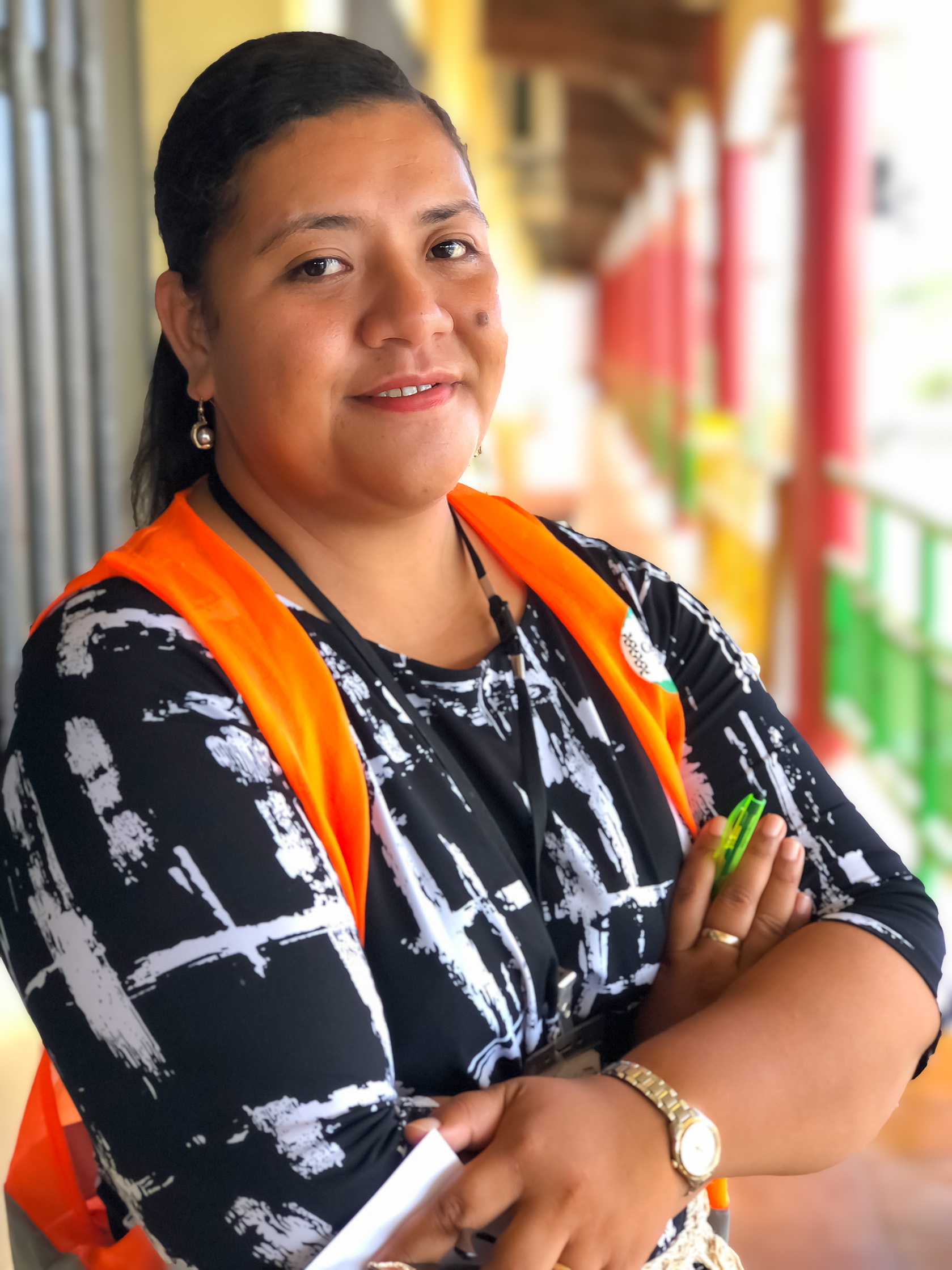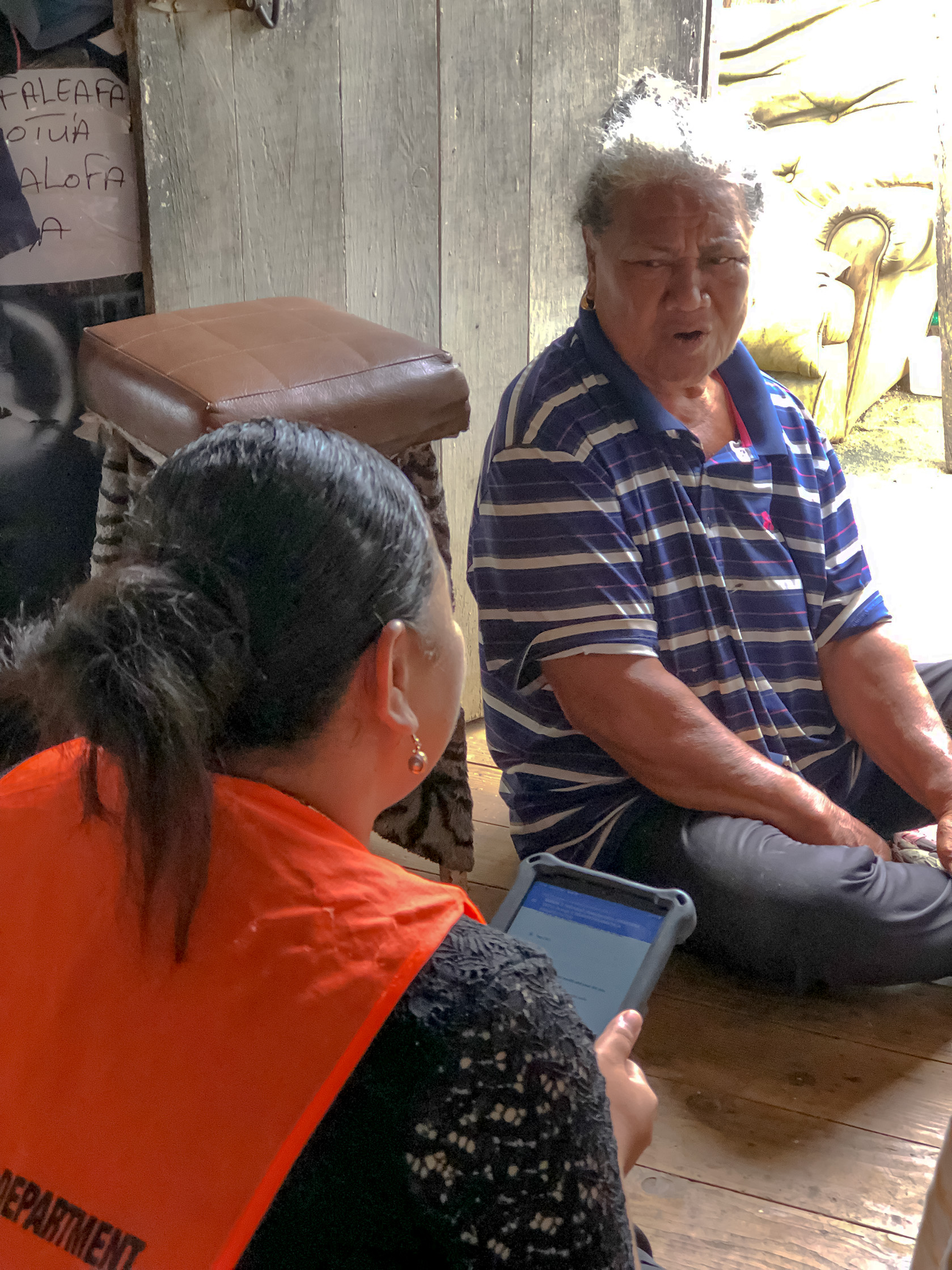Take Five: “It’s really important to hear the voices [of] males and females and their unique experiences with the environment.”
Date:
Interviewer: Montira Narkvichien
Matafolau Fa’aoa, 29, is among 27 enumerators of the Tonga Government’s Department of Statistics who are doing the first survey on gender and environment. The 31 October-24 December 2022 survey supported by UN Women, covers 2,541 households on the main island of Tongatapu and outlying islands. It details how women and men manage natural resources, deal with hazards and with the consequences of climate change, among many other areas. Tonga was hit in January 2022 by a tsunami caused by a volcanic eruption. Matafolau is doing the survey on Tongatapu, the main island of Tonga, where she was born.


In October 2022, UN Women did the first training to prepare all enumerators for the survey. What new techniques did you learn?
It helped to picture myself interviewing the people with a lot of questions. So I must make myself really prepared for going out, facing people, familiarizing [myself] with [the] questions, approaching the people. I was prepared to face households refusing to participate in the survey. During the survey … I talked very humbly to them. Sometimes they went off to talk about other things, so I had to listen to them with patience.
Tell us about your observations of the respondents when answering your questions.
Though the questionnaires are long for them, the respondents know how important it is. They are fully aware why we are interviewing them and that they are helping … future generations. So they are patient in answering every question. [Also] they are keen to know how their home and their family will be rebuilt with support from the Government.
What are the main differences of this gender and environment survey and the previous surveys you conducted?
Firstly, the way we use our tablet to collect data. Secondly, we ask the respondents for their physical signature. When we open the new questionnaire for each household, we need to tap our start time and the end time. It is not going to move on to the next section until we enter the end time of the previous section. The strict monitoring of time spent in each section is for us to collect highly qualified data right from the start.
Can you tell us more about the tablet used for data collection?
I used paper-based questionnaires in the previous surveys. It was hard for me at the start when we first used the tablet. Now I am much more confident in using the technology. It is important to store our data into it. The way it has been designed has made it easier for the supervisor to check the information, and to synchronize our work onto the server.
How do you see your contribution to the leadership of Tonga as the first country in the Pacific to conduct this gender and environment survey?
I think this survey might help the country, the Government, to make decisions and planning. We definitely have the data … already showing the effects of the volcanic eruptions, the tsunami. They [the Government] will be able to see which [are] affected parts of the country where they will make decisions to rebuild the houses. It’s very targeted. It’s really important to hear the voices [of] males and females, and their unique experiences with the environment, climate change and how it is related to them. … I’m not sure if what I am doing will help now, but I think and I trust it will help the children and their following generations.
UN Women is grateful to the government of Australia for their generous contribution to the Building Back Better project. The project supports the production and use of gender data on the Pacific and Southeast Asia.